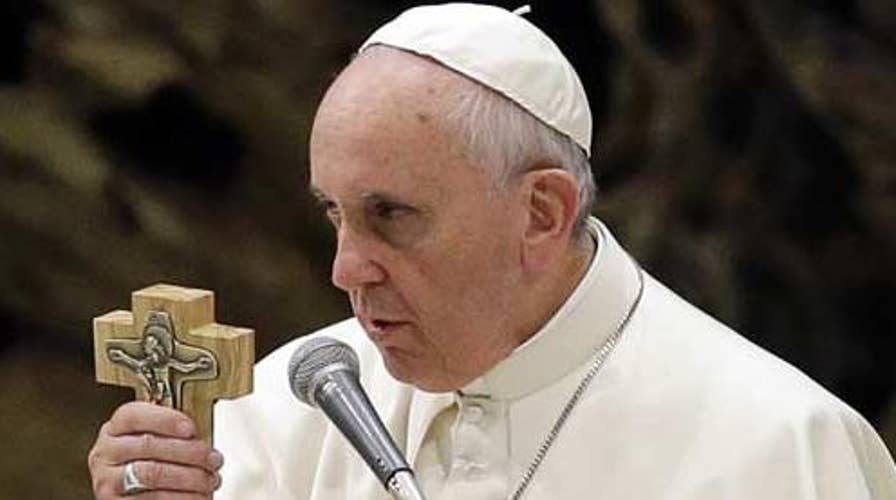Pope Francis has suggested that Catholics learn a new line when they say the Lord’s Prayer, often called the Our Father. Jesus taught us this prayer, and so we say it. This beloved prayer is said by nearly all Christians weekly, if not daily.
Why is the pope asking people to learn a new line?
No, the pope is not trying to put new words in Jesus’ mouth. Yes, I am grateful for what the pope is asking, even though I am not a Roman Catholic.
There are two reasons I am grateful for the pope’s request to change “lead us not into temptation” into “do not let us fall into temptation.” First, these new words are actually closer to what Jesus said. Second, they offer better theology.
Despite our ideas to the contrary, Jesus did not walk around speaking the English of the King James Bible. He spoke Aramaic, which the church soon translated into Greek for preaching and teaching. Some centuries later, the Western church began to pray in Latin.
Jesus knew what it was like to be tempted, because he was tempted by Satan. So our God knows the pain and struggle of temptation and does not will it upon us.
The English wording that we use when we pray the Lord’s Prayer comes from Wycliffe’s translation of the Bible from the late 1300s. Matthew 6:13, the newsworthy line, reads, “and leede us nat in to temptacioun.”
Starting in the later years of the 20th century, Bible scholars began offering better translations into English from the original languages of the Lord’s Prayer. The New Revised Standard Version of the Bible gives us Matthew 6:13 like this: “And do not bring us to the time of trial, but rescue us from the evil one.”
Why is this better? God does not create temptation for us. Such a God would be pretty cruel. God stands with us when we are tempted, but it is not God who sends temptation. The Letter of James (1:13-14) in the New Testament puts it like this: “No one, when tempted, should say, ‘I am being tempted by God’; for God cannot be tempted by evil and he himself tempts no one. But one is tempted by one’s own desire, being lured and enticed by it.”
Temptation is the result of our humanity. We are free to make our own choices, and in our sinful ways of living, we often make bad choices. But God does not inflict this upon us. So we don’t need to pray, “Lead us not into temptation” because the world doesn’t work that way.
This time of year, as we prepare to celebrate Christmas, we remember that God once lived among us. Jesus Christ took on human flesh and knew every aspect of human life except for sin. Jesus knew what it was like to be tempted, because he was tempted by Satan. So our God knows the pain and struggle of temptation and does not will it upon us.
Pope Francis would have us pray “do not let us fall into temptation.” It’s a subtle difference. But it is an important difference. In this better translation, we are praying for God’s guidance to keep us away from temptation.
Perhaps a slightly silly example will help. If I am trying to avoid sugar, God does not put cupcakes in front of me to tempt me, to see how well I can resist the delicious cupcakes. But if I am trying to avoid sugar, I might ask God to give me strength and courage to walk past the bakery.
God using cupcakes as bait is awful theology. God helping me avoid the cupcakes is better theology.
Though I am not a Roman Catholic, I love Pope Francis. He gets us talking theology. He gets us thinking about our Christian faith, so we don’t take the demands of following Jesus for granted.
I’m willing to learn a new way of praying the Lord’s Prayer if it helps me be a better follower of Jesus.









































